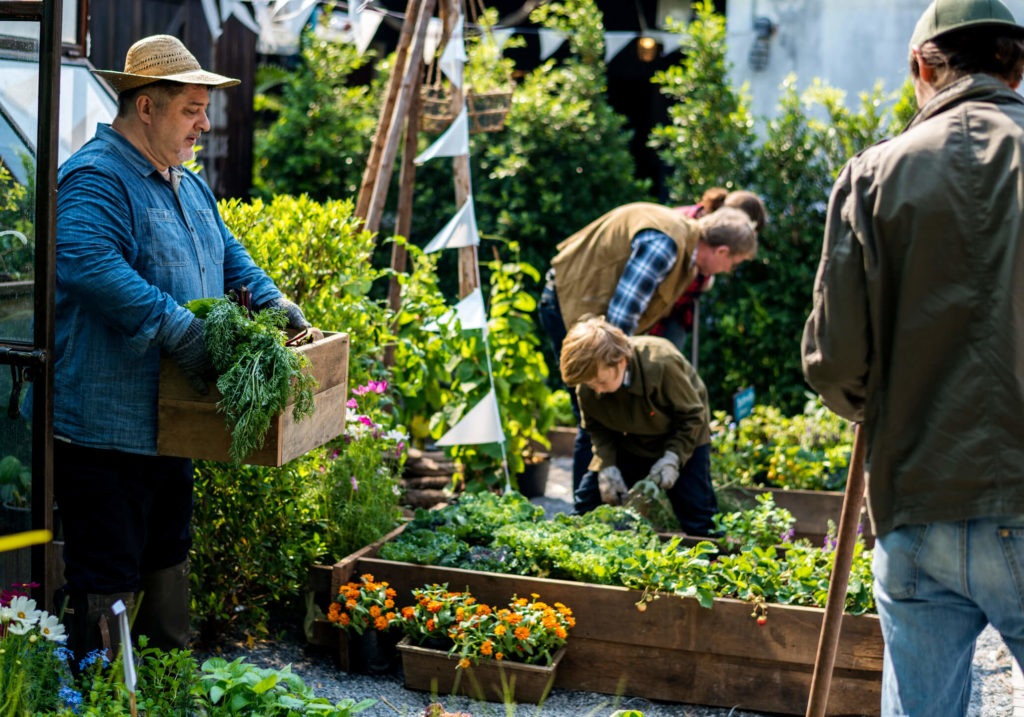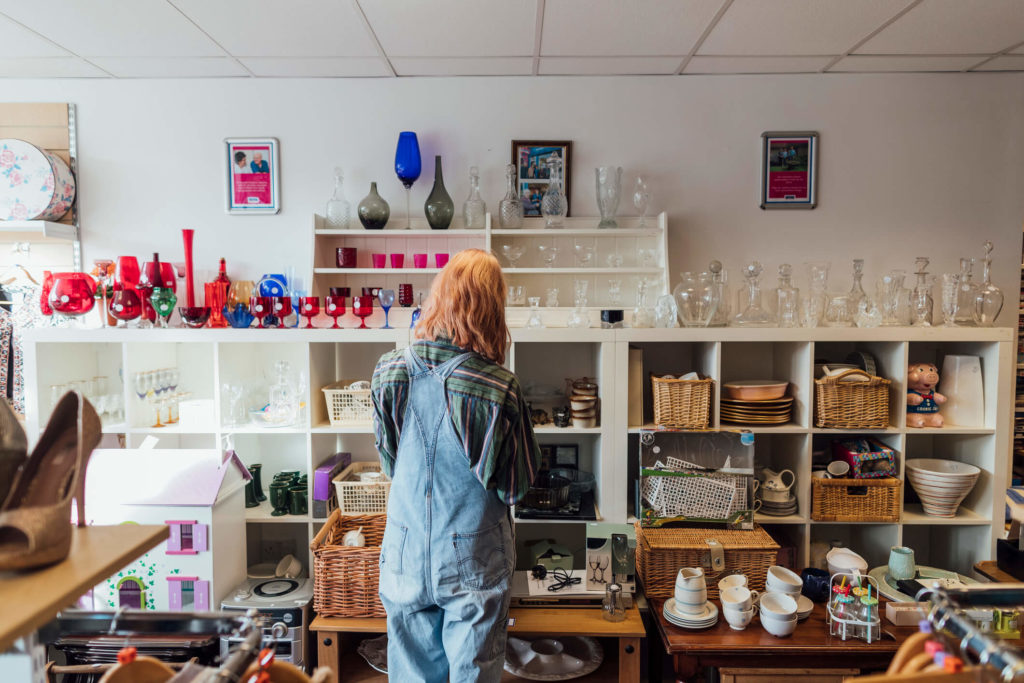

By starting to incorporate these savvy switches into your everyday living, your zero waste journey will be stress-free, will save you money, and most importantly, will be incredibly kind on the planet.
Keep reading to find out what zero waste living means, why you should consider trying it, and finally, our list of zero waste swaps, all of which you can start making from today.

Before we get started, let’s talk about what living a zero waste life actually means.
Put simply, a zero waste lifestyle aims to send nothing to landfill. Its principles are to:
That may sound overwhelming, but a zero waste lifestyle is something you can start working towards slowly and steadily, but with every single little step making a difference, and luckily we’re here to help you make your first stride.
For more information on recycling and why it’s so important why not check out this Gosh! article.
Now that we’re clear on what zero waste means, let’s talk about why you should think about adding zero waste products and practices into your daily routine.
Practicing zero waste habits is a great way to reduce your carbon footprint and your impact on the planet.
The mindset of zero waste aims to empower individuals to begin reversing the negative impacts of over-consumption so that every person who begins to practice zero waste habits is helping to conserve resources and reduce pollution.
Zero waste swaps can save you money in a number of ways.
First of all, becoming more conscious of over-shopping whether it’s for food, clothing or general life, means you’ll start buying only what you really need, meaning you’ll reduce waste whilst saving your pennies.
As well as this, investing in reliable, reusable products will pay off in the long run, because they’re designed to withstand time. Treat them as a long term investment into your wallet and into the planet.
Finally, living a zero waste life means finding inventive ways of using less. DIY projects, second-hand shopping and upcycling often mean your money goes much further.
It’s been reported that repair, recycling and remanufacturing create over 200, 50 and 30 times as many jobs as landfills and incinerators respectively.
And in addition to creating more jobs, zero waste has also been shown to create jobs with higher wages, more permanent positions and better quality of life.
Promoting going zero waste can encourage community based initiatives focused on things such as food waste, composting, going plastic free and using tool and skill sharing to aid reusing and preparing in the community.

So now that we’ve looked at the what and the why of going zero waste, let’s move on to the main event, our ultimate list of easy zero waste swaps for eco-friendly and sustainable living.
This may be one of the easiest zero waste swaps you can make.
Purchasing a reusable water bottle means you’ll be plastic free, and as a result, prevents unnecessary disposable plastic packaging from going to landfill.
Add this to your list of things to remember when you leave the house and you’re onto a winner!
Another super easy swap is investing in a bamboo coffee cup.
You can still get your oat milk flat white from your favorite coffee shop on your way into work, but this way you’re being kinder to the planet in the process.
Alternatively, you can make a fresh cup at home from your conscious French press (we’ll get to that later) so that you’re saving money whilst saving plastic cups from going to landfill!
Single use plastic straws can be effortlessly swapped out for a handy reusable straw.
They’re super slim and compact so you can just pop it in your bag and take it anywhere you go.
Ditch plastic cutlery for something that’s compostable or biodegradable, or alternatively, purchase a snazzy stainless steel or bamboo set that can be used over and over again.
See our article What’s in Gosh!’s Backpack: Zero Waste Edition for even more amazing on the go zero waste solutions.
A hugely helpful habit you can start practicing is meal prepping.
Meal prepping can save on time, money, electricity and stress, plus it goes hand in hand with using reusable food containers, so you’re getting two zero-waste habits for one.
You can batch cook meals at the start of the week, pack them away into reusable containers and have your lunches sorted for the week ahead so that you don’t have to keep purchasing those pesky meal deals – the prices of which really start to add up!
For inspiration and information on meal prepping, check out our Meal Prep Series over on the Gosh! Instagram page so you can see how to use Gosh! to reduce waste everyday.
You can also check out our product range here, which is great for all your meal prep needs. Our scrumptious snack bites in particular are perfect for prep as you can get 3-5 meals out of one packet, plus they’re available in Lidl, Aldi, Morrisons and Tesco, so they’re super easy to pick up in your weekly shop!

When you’re doing your food shop, avoid the use of plastic bags by making sure you remember to take reusable grocery bags, along with reusable produce bags for all your delicious veggies.
Swap your regular supermarket for a zero waste grocery store.
They will be specially equipped for all your zero waste needs with package free solutions such as refillable oats, milk, spices and washing up liquid for waste free shopping.
They will also stock products from ethical brands committed to cutting out waste and utilising plastic free packaging.
The food you’re buying every week can be incredibly important in helping towards a zero waste lifestyle.
Switching to a plant based diet, or gradually working towards decreasing your meat consumption, is a small yet wonderful way to be kinder on the planet.
Here at Gosh! we’re all about making plant based eating easy, accessible and delicious. So whether you’re already on a plant based diet, practising flexitarianism or gradually decreasing your meat consumption, our products can help you on your lower waste journey.
Not only do we make sure the ingredients we use are all natural, we also strive to ensure they’re made with minimal processing and are free from nasties like palm oil and chemicals.
As well as this, our packaging is something we’re particularly proud of. Our trays are 100% recyclable and nearly 60% of the rest of our product packaging is made from fully recyclable material, a figure we’re constantly working towards making 100%.
Check out this article to read more about the different ways Gosh! aims to have a positive impact on the planet.
A great low waste change to make in your kitchen is to start a compost bin.
Instead of throwing away unwanted food, you can turn it into nutrient rich fertilizer to use in your garden.
Instead of plastic coffee pods, or single use coffee filters, make a zero waste swap by getting your caffeine kick from a french press.
Swap out cling film for natural, organic and vegan beeswax wrap.
These are a brilliant way to reduce your plastic usage in the kitchen.
Instead of single use paper towels, start incorporating reusable, long lasting and absorbent bamboo ones.
Just pop them in your washing machine or give them hand wash when they need a refresh.
An incredibly simple way to make your kitchen habits more circular is by reusing the glass jars in your pantry and repurposing them into food storage solutions.

Traditional toilet paper is usually the most wasteful thing in a bathroom.
An easy sustainable alternative is recycled or bamboo toilet paper, or if you want to go one step further, a bidet is even more low waste.
Making your own soap bars is not only far more sustainable than buying plastic packaged hand soap, but it’s also an incredible way of making sure all the ingredients going into your soap are natural.
Plus, it’s super fun to make!
Top Tip – Add your own choice of essential oils into your DIY bars to give them a gorgeous scent.
Plastic toothbrushes may be temptingly cheap, but they’re incredibly damaging to the environment.
Swap them out for bamboo toothbrushes, which nowadays can conveniently be found in most supermarkets.
Much like the plastic toothbrush, it’s easy to see why people reach for the super cheap disposable razor.
By investing in a reusable metal one, you’ll find it to be incredibly long lasting, and of course much more environmentally friendly.
Zero waste deodorant will leave you smelling good and feeling great, so ditch the disposable to and benefits the planet whilst you benefit your pits.
Unfortunately, so many sanitary products are made using plastic, but luckily there are now loads of zero waste alternatives available such as menstrual cups and period pants, both of which can safely be used every month.
Where you can, one of the easiest swaps to make is buying products second hand instead of brand new.
This gives items another life and gives you new things to enjoy, but without using additional resources in the manufacturing process.

We’ve given you all of our top zero waste tips, now it’s your turn to have some fun making some zero waste alterations.
Why not check out our article on 50 Everyday Items You Can Reuse or Repurpose for some inspiration.
Plus, take a look at how, here at Gosh!, we’ve been turning waste into renewable energy.